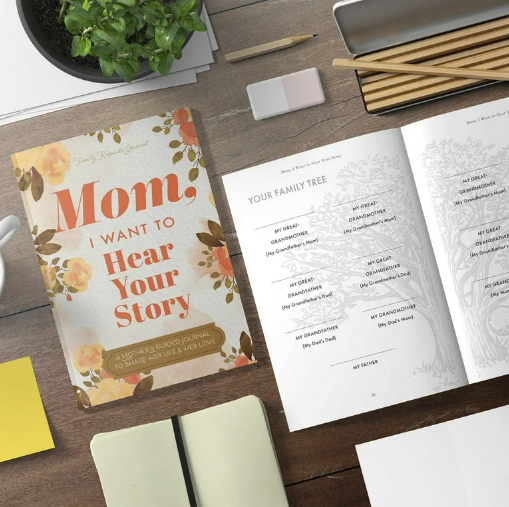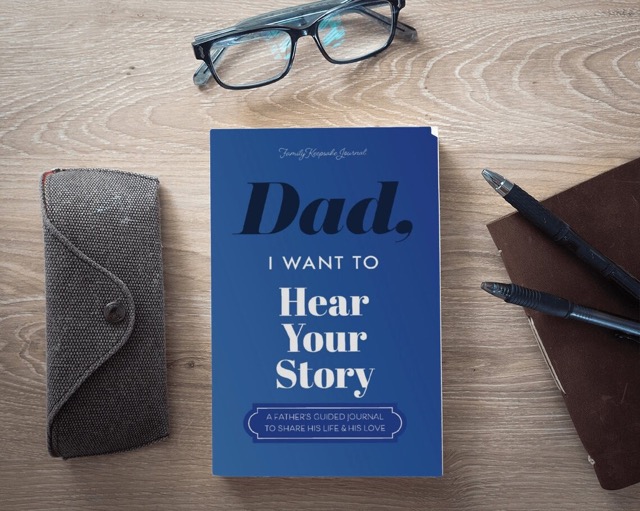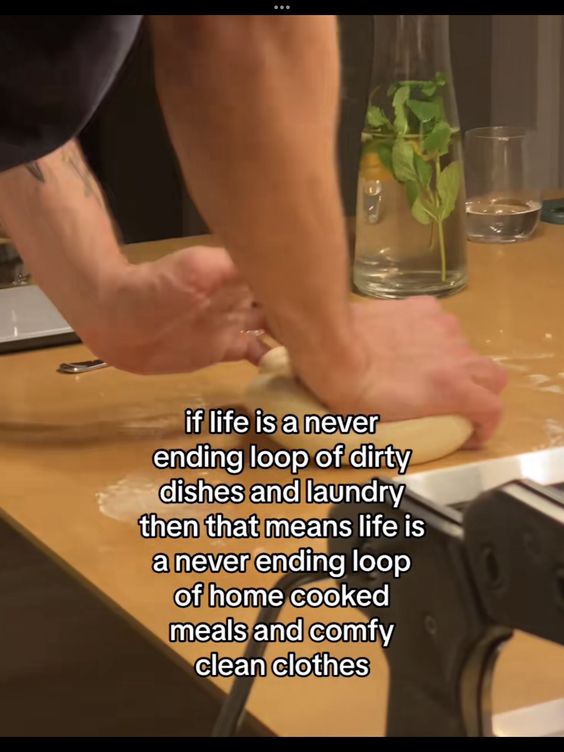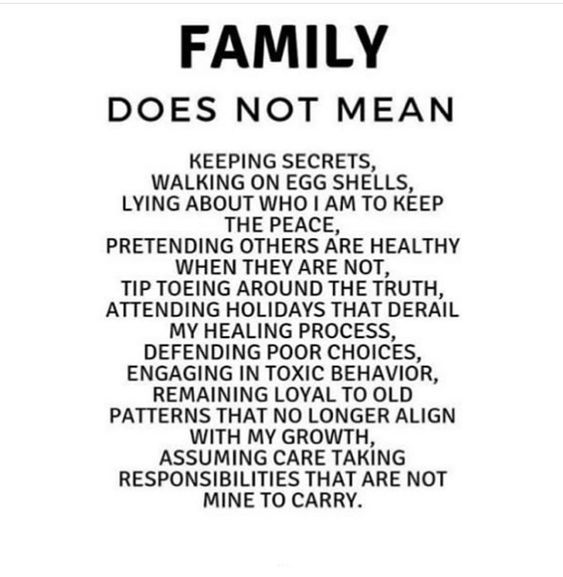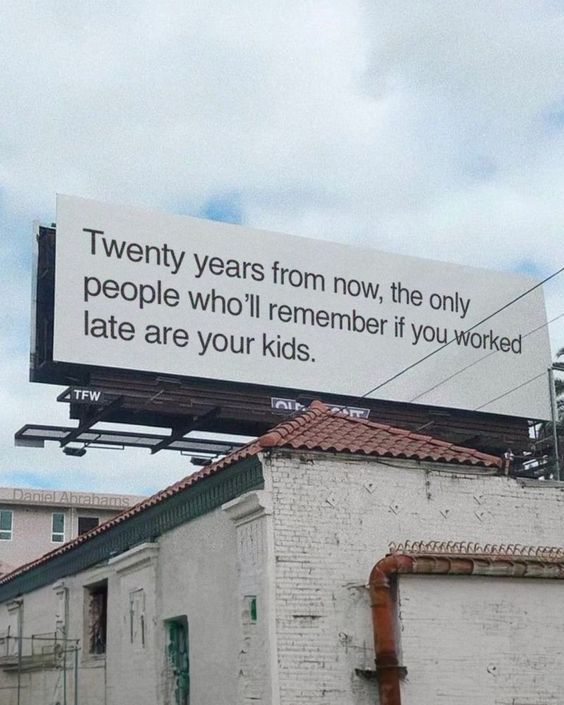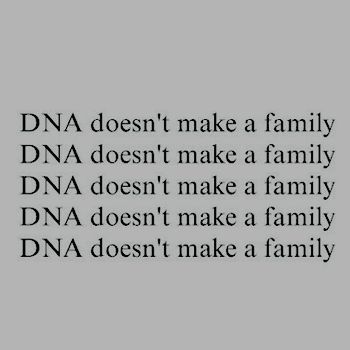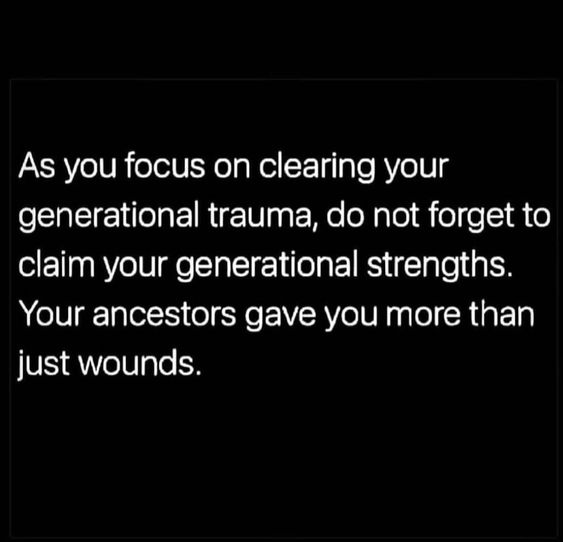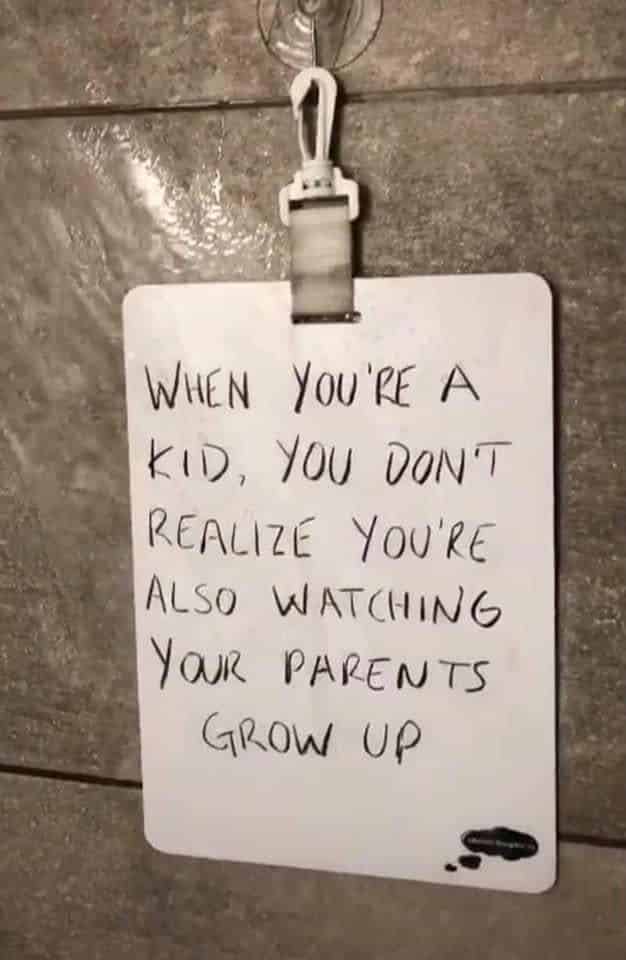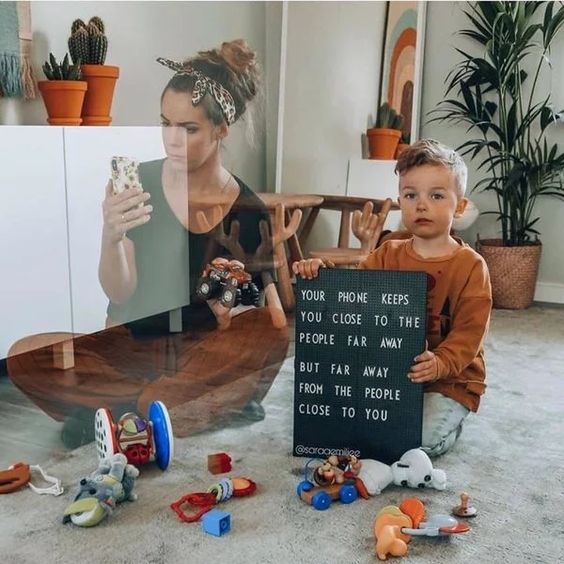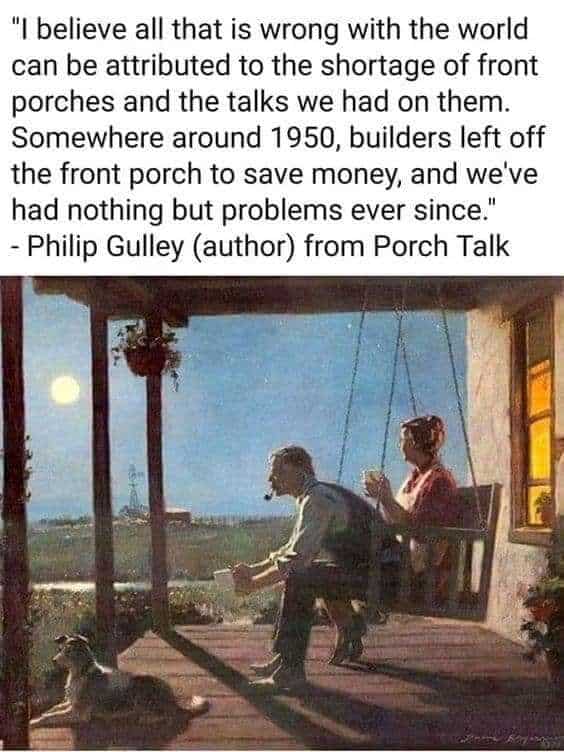“Toni Morrison came home one day complaining about her job cleaning someone’s house to her father. She expected him to get angry on her behalf or to pity her. Instead, he said, ‘Listen. You don’t live there. You live here. With your people. Go to work. Get your money. And come on home.’ What he was teaching her, Morrison later wrote, became a set of principles she based her life around. (1) Whatever the work is, do it well—not for the boss but for yourself. (2) You make the job; it doesn’t make you. (3) Your real life is with us, your family. (4) You are not the work you do; you are the person you are.”
Ryan Holiday
Mom, I Want to Hear Your Story
Why We ♥ It: The best-selling and acclaimed way for you to discover everything from your Mother’s childhood memories to the profound turning points in her life. Featuring expertly crafted questions in an easy-to-use layout, each intentional section gives your mom a place to share and reveal her life story and memories with you while creating a lasting legacy.
Dad, I Want To Hear Your Story
Why We ♥ It: This book will guide your Father with prompts and questions, making it fun and easy for him to share the stories of his childhood, teens, and adult years. This will be the tale of his life, his victories, his challenges, and his lessons. You will give your dad a gift he will cherish while also giving yourself the gift of knowing him a little bit (or a lotta bit) better.
“Every event has two handles: one by which it can be carried, and one by which it can’t. If your brother does you wrong, don’t grab it by his wronging, because this is the handle incapable of lifting it. Instead, use the other—that he is your brother, that you were raised together, and then you will have hold of the handle that carries.”
Epictetus
“I wondered if I should try to explain how important it was to me. That cooking my mother’s food had come to represent an absolute role reversal, a role I was meant to fill. That food was an unspoken language between us, that it had come to symbolize our return to each other, our bonding, our common ground. But I was so grateful for Kye’s help that I didn’t want to bother her. I chalked these feelings up to the unwarranted self-involvement of an only child and decided if Kye wouldn’t teach me, I should commit myself to another role.”
Michelle Zauner, Crying in H Mart (Page 98)
“I remembered how when I was a child I would slip my cold feet between my mother’s thighs to warm them. How she’d shiver and whisper that she would always suffer to bring me comfort, that that was how you knew someone really loved you. I remembered the boots she’d broken in so that by the time I got them I could go on unbothered, without harm. Now, more than ever, I wished desperately for a way to transfer pain, wished I could prove to my mother just how much I loved her, that I could just crawl into her hospital cot and press my body close enough to absorb her burden. It seemed only fair that life should present such an opportunity to prove one’s filial piety. That the months my mother had been a vessel for me, her organs shifting and cramping together to make room for my existence, and the agony she’d endured upon my exit could be repaid by carrying this pain in her place. The rite of an only daughter. But I could do no more than lie nearby, ready to be her advocate, listening to the slow and steady beeping of machinery, the soft sounds of her breathing in and out.”
Michelle Zauner, Crying in H Mart (Page 86)
“Food was how my mother expressed her love. No matter how critical or cruel she could seem—constantly pushing me to meet her intractable expectations—I could always feel her affection radiating from the lunches she packed and the meals she prepared for me just the way I liked them.”
Michelle Zauner, Crying in H Mart (Page 4)
Crying In H Mart [Book]
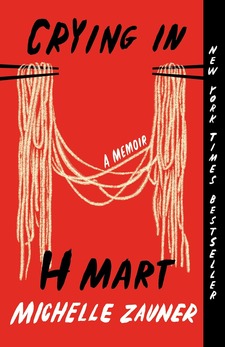
Book Overview: In this exquisite story of family, food, grief, and endurance, Michelle Zauner proves herself far more than a dazzling singer, songwriter, and guitarist. With humor and heart, she tells of growing up one of the few Asian American kids at her school in Eugene, Oregon; of struggling with her mother’s particular, high expectations of her; of a painful adolescence; of treasured months spent in her grandmother’s tiny apartment in Seoul, where she and her mother would bond, late at night, over heaping plates of food. Vivacious and plainspoken, lyrical and honest, Zauner’s voice is as radiantly alive on the page as it is onstage. Rich with intimate anecdotes that will resonate widely, and complete with family photos, Crying in H Mart is a book to cherish, share, and reread.
Post(s) Inspired by this Book:
“What a waste of her life to spend herself trying to be something good enough for mother, when she was already good enough. Nothing could ever be good enough to finally satisfy such a mother. If she can face what a fool she has been to have tried and tried to transform her vitality into a power that would make this insatiable mother happy, she may then be able to reclaim her power for herself. She never had any real power over mother, or over the feelings of anyone else. Her only real power lies in taking charge of her own life, enjoying being who she is, and making her life as meaningful as she can for herself, whatever others may or may not expect of her.”
Sheldon B. Kopp, If You Meet Buddha On The Road, Kill Him! (Page 88)
“It’s okay—necessary, in fact—to protect yourself from those in your family who aren’t good for you. We should have the same standards for our family as we do for everyone else, and if the relationship is fraught, we can love them and respect them from a distance while gathering the family we need from the wider world. This doesn’t mean we should neglect our families. But forgiveness and gratitude come more easily when we accept that we have friends and family, and we have friends that become family.”
Jay Shetty, Think Like A Monk (Page 229)
